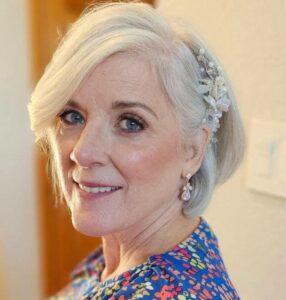I’ve had trouble knowing when to count and when not to.
Take for example, March of 1996. Guest after guest stopped by our apartment for a bite to eat. At the time, our family was living in Mongolia, where both giving and receiving hospitality is a privilege. Placing a candy bowl on the table, handing out cups of hot tea, bread and jam is obligatory. These offerings are followed up by beef noodle soup if the guests linger close to the 45-minute mark or if the soup is hot on the stove.
Well that particular year, food staples were scarce. Over the winter, the nation had limped through an “egg scare” after four famous physicians died of dehydration associated with food poisoning. The source? The four had just come from a party where they were served potato salad. Journalists blamed the eggs, when in truth the four were drunk to the point of passing out and didn’t recognize the signs of dehydration. Nevertheless, there were no eggs for sale for at least two months for the entire city.
Simultaneously, effects of the bread rationing of the early 90s continued. At the local bakery, only the first couple hundred shoppers in line took home a loaf. I am sure most people I knew only ate one meal a day, with at least three hours of the day in search for ingredients for soup.
Somehow, our apartment became something much like a restaurant, open from sun-up to sun-down for the members of the Christian church with which we associated. Any excuse marked the opportunity for our friends to stop by to see what was cooking.
On their first wedding anniversary, newlywed Boldbaatar asked his wife Dorchand, “Where would you like to go out to eat?”
Her answer, “The Younkers.”
And so, the counting of meals began. My motive was fatigue. I was determined to see if the reason for my exhaustion was the number of extra mouths fed. I began counting on March 1st. By mid-month, I reached close to 100 extra meals given, but since I had trouble counting and I always rounded up, my number may not have been accurate. Nevertheless, I stopped counting, and modified my serving to my own family, my children’s friends and all visitors older than myself. Why did I stop at one-hundred? Because my devotional reading stopped me cold.
I was reading in the Old Testament regarding the last story of King David in the book of 2 Samuel. Near the end of his life, during a time of peace, he demanded a census of the mighty warriors of Israel and Judah. It wasn’t long and he was “conscious -stricken.” He saw his own foolishness, his pride or lack of faith in the Lord’s power to secure His people despite the “number of warriors” available. The punishment that was wielded out fell hard upon the nation in the form of a deadly plague.
Finally, David confessed in prayer, “I have sinned. I, the shepherd, have done wrong. These are but sheep. What have they done? Let Your hand fall on me and my family.” If King David was wrong to count his men, I was wrong to count meals. I recognized that pride slipped in well before I reached the 70th meal.
As I reflect upon my problem, I remember references to counting in our American tradition. “Counting sheep to fall asleep” is probably the most famous of them. And I can’t forget the advice of, “Don’t count your chickens before they’re hatched.” I guess other women have had problems with counting as well as I have!
Even though there is wisdom in the proverbs of oral tradition, it’s God’s Word that trains me in righteousness. If I read the words of the Lord Jesus correctly, when he told Peter to forgive his brother seventy times seven, I think he was really saying, “Don’t count the grievances you have with another human being. Forgive again. Don’t keep track.”
Paul the apostle said he counted all of his religious efforts and training as nothing in light of the righteousness of Christ. Paul says,
“But whatever were gains to me I now consider loss for the sake of Christ. I consider everything a loss because of the surpassing worth of knowing Christ Jesus my Lord, for whose sake I have lost all things. I consider them garbage, that I may gain Christ and be found in him, not having a righteousness of my own that comes from [keeping] the law, but that which is through faith in Christ—the righteousness that comes from God on the basis of faith.”1
I follow Paul’s thinking entirely. If I became a child of God because I did so many good things for Him, I would lose my position faster than I could count to three, the moment I started counting my good works!
Another reference to counting in the Bible comes from the book of James where we are told to “count it all joy when we encounter various trials.”2
I want to take some practical advice from this admonition. First, we count each particular suffering, not so much with a number but with a name. Our current painful situation might be called—overworked, underpaid, rejected, overwhelmed. A precise name is a great way to start because naming a situation may lead to a solution. Besides, merely counting how many things that are going wrong is just an excuse for self-pity—which, I realize, most of my counting has been all along.
After we name our current suffering, we can follow it up with another mathematical action—to equate. We are encouraged to equate the present uncomfortable circumstance with an attitude of joy. In Bible terms, that probably means the circumstance is not a surprise to God, it is well in hand, and it is there to train us to be more like Christ. There is no need to despair or self-destruct.
So, I conclude that some things we should count, but other things we should not. I need to discern the difference.
1 Philippians 3:7-9
2 James 1:2-3



